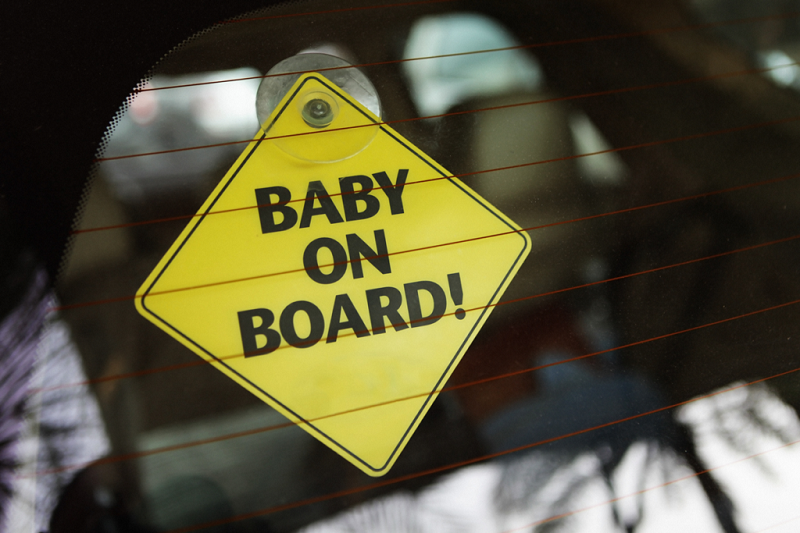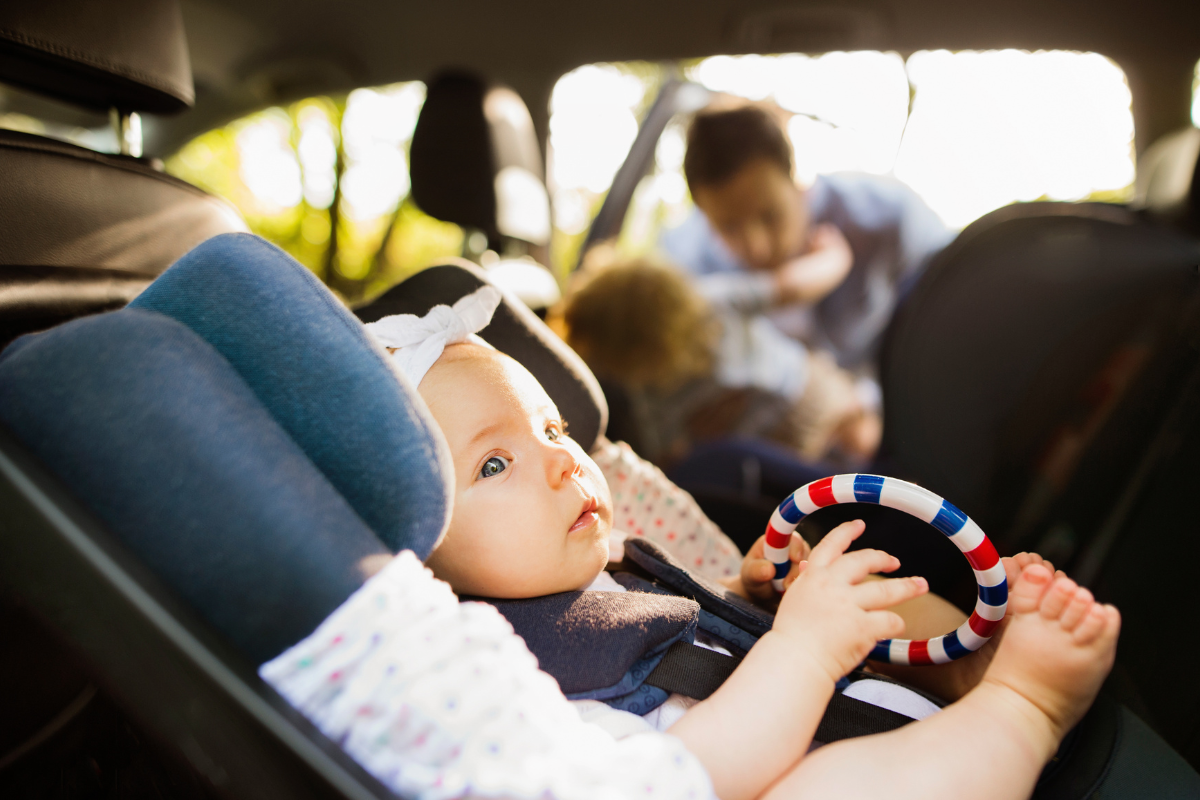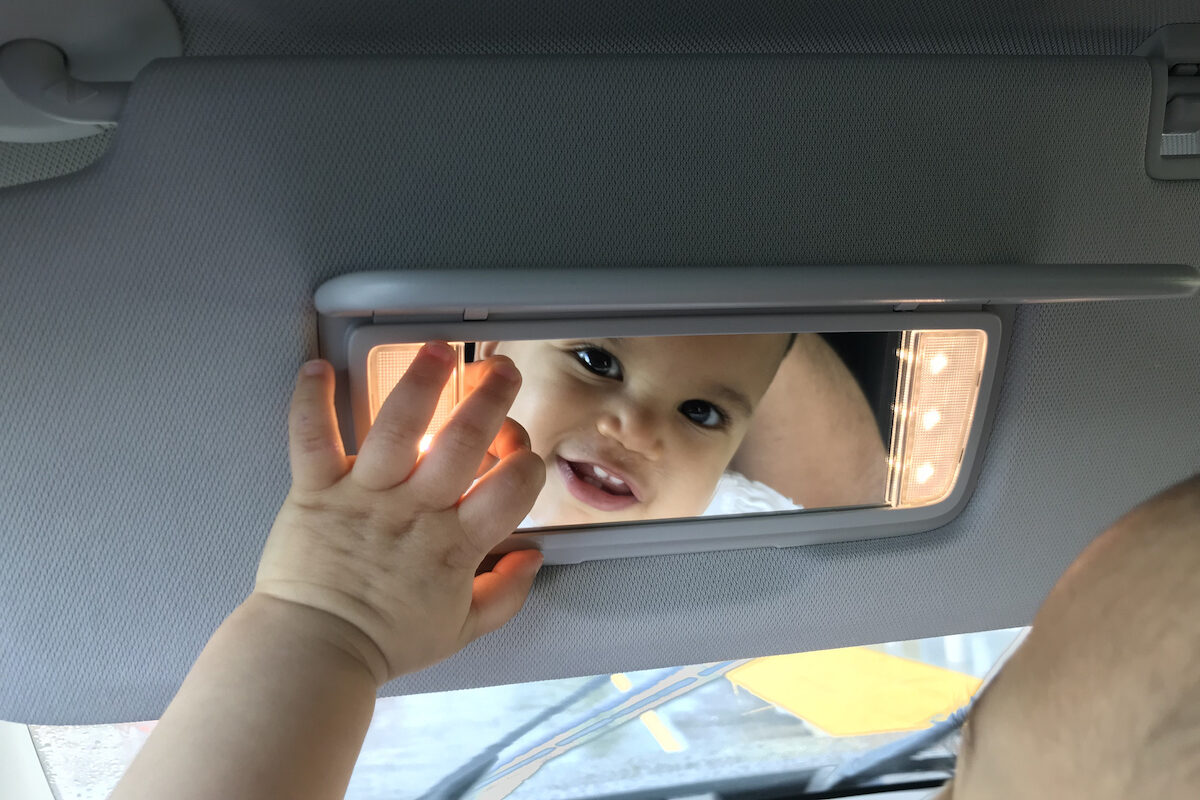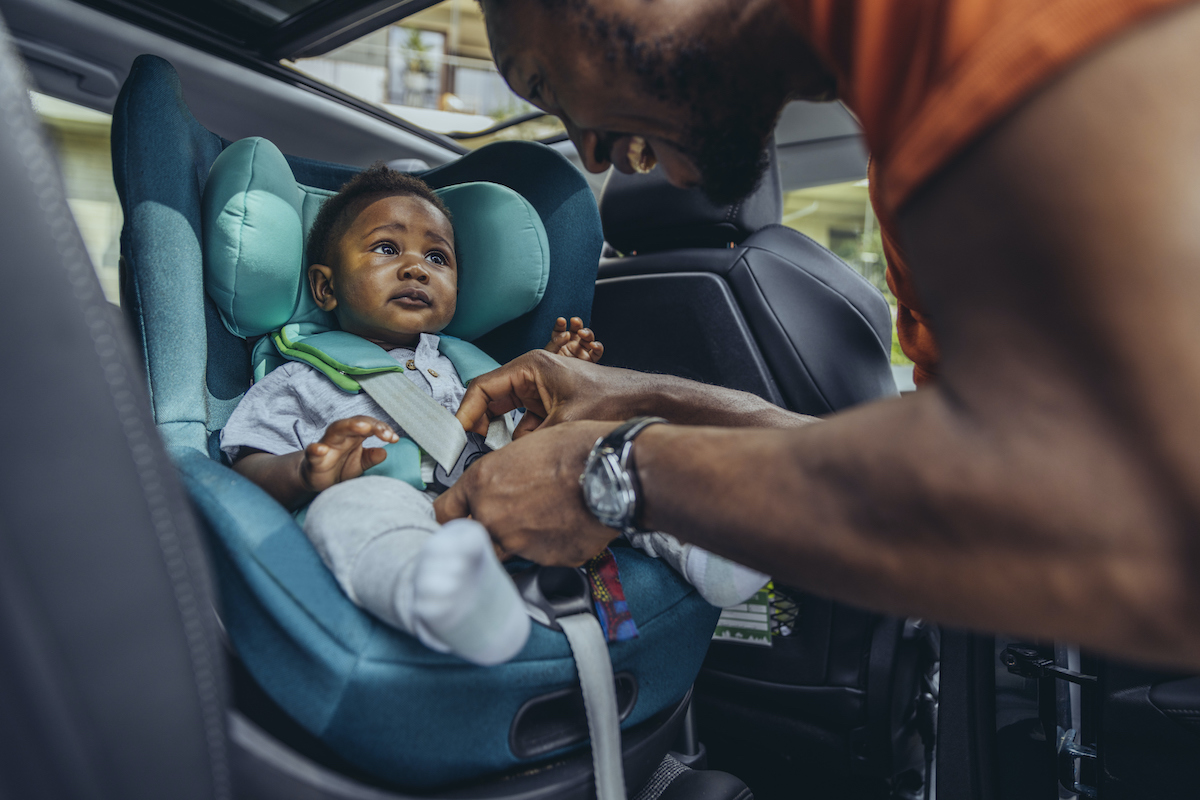Do “baby on board” car stickers change the behavior of drivers nearby? My husband wants to get one for our car, in the hopes of reducing the likelihood of an accident. I’ve always found these stickers ridiculous, and doubt that they do anything beyond causing eye rolls. My theory is that what might actually reduce the likelihood of an accident would be using a “student driver” sticker, because then it’s in the nearby drivers’ own interest to give the driver a lot of room. My husband is not a fan of this idea. What, if anything, does the data say about these car stickers? Are either effective in reducing accidents? Thank you for helping solve another marital disagreement! Note: We actually do have a baby on board, but no student driver.
—Sticker Skeptic
This represents a level of detailed thinking about car stickers that I can really get on board with. In our family, my husband completely opposes all car stickers or decorations, much to my children’s chagrin. So I’m excited to get to dive in here with you.
There is no evidence on “baby on board” stickers, though! You can see why — it would be hard to collect. My best research idea here is to put stickers on cars randomly, install cameras, and see how other drivers react: how close they get, etc. This seems doable. Why hasn’t it happened? Putting my market-oriented hat on, I think the answer is that it’s an expensive study and no one could monetize it.

Getty
As in, let’s imagine some company that makes baby-on-board stickers invested in doing this and then found it improved safety. That is likely to make many more people want to buy such stickers. But the company that invested in the study isn’t going to benefit from that demand surge, because many other companies can make the same sticker product. It’s a perfectly competitive market! Zero economic profits, no rents.
Okay, sorry, sorry. I realize you did not ask to attend my microeconomics class; you just wanted an answer about stickers. Which is that we do not know.
In the lay press, there are actually a lot of disagreements about stickers. Newsweek tells us that these stickers cause thieves to think that you’re distracted, so might be good to rob. The Australian Broadcasting Company says they might work, who knows, why not? (I guess the “why not” is thieves.) I found one website from a sticker company saying that student-driver stickers make some people give the car more space and others get interested and give it less space.
How can you decide what kind of sticker you want, without data? I will end by pointing you to this wonderful essay: “My Volvo, My Self: The (Largely Unintended) Existential Implications of Bumper Stickers.” It is worth a full read, but the author makes the case (I think) that you should have no bumper stickers. As she says: “So given the above examples of all the bad feelings and dire consequences that bumper stickers have unleashed into the world, here’s why I think we should all be more worried about bumper stickers in general, and why I’m worried about my own bumper sticker in particular. Bumper stickers just say too much too soon.”
Conclusion: no stickers.
Community Guidelines




















Log in
I had been told that Baby On Board stickers were supposed to alert first responders to the presence of a child in the car. Which is why I never felt comfortable driving around with a permanent sticker on the car, for those times when there’s NOT actually a baby in the car. What if first responders started searching for a missing baby after a crash, being misled by an inaccurate sticker?? Overthinking maybe. But that’s why I took the magnet off my car.